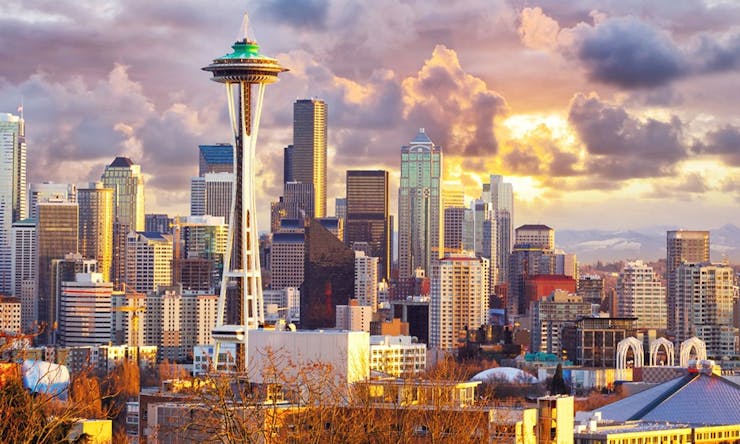Seattle medical dispensaries got a shock when they were slapped last week by notices from the Washington State Liquor and Cannabis Board (LCB) telling them they had 14 days to relocate outside the city or risk being shut out of the state’s licensing process. The problem, according to LCB officials, is that there are approximately 100 dispensaries in Seattle and about half meet the criteria to be Priority 1 businesses, which receive first consideration for a state license.
Washington has just 21 additional licenses available for all of Seattle. That means as many as 30 qualified dispensaries won’t receive licenses and could be forced to shut down.
According to LCB spokesman Mikhail Carpenter, the letter was sent out as a courtesy. Carpenter said the board wants to keep lines of communication open to the dispensaries vying for licenses. “The problem is that there are more Priority 1 applicants than there are licenses available,” he explained, “so we wanted to let them know that they have 14 days to choose a new location [outside the city], to increase their chances of getting a license. The last thing you want as a regulator is to issue those 21 licenses and have everyone come back to you after the fact saying they had no idea this was happening.”
The letter went out only to Priority 1 dispensaries that met criteria to be the top tier of applicants in Seattle. While 14 days may seem like a major time crunch, the time period is standard for applicants whose location doesn’t fit the bill. The letter is a courtesy notice to the many qualified applicants, letting them know that they’ll need to apply sooner, rather than later, and if they choose to apply outside of the Seattle city limits to increase their likelihood of getting a license, they will have 14 days to choose the location.
The city has already issued two of the coveted new licenses, which means there are just 19 remaining. With at least 30 dispensaries on the chopping block, it's clear there’s demand for more than 21 dispensaries citywide.
Seattle City Attorney Pete Holmes wrote a letter to the LCB in 2013, expressing concern that 21 licenses would be inadequate to serve the entire city. “However, the Liquor and Cannabis Board has shown that they are open to continually making readjustments,” Holmes told Leafly, “and they may up that limit.”
Holmes said he sympathizes with medical dispensaries scrambling to get their paperwork done and prepare for city inspections. But he was firm on the question of delivery services. “Delivery services are illegal, period,” he said. “They are subject to prosecution under both state and federal law. They are committing the felony of illegal distribution. These people are opportunists taking advantage knowingly of both the situation and the patients.”
Delivery services are illegal under both I-502 and Washington’s recently passed Cannabis Patient Protection Act, but Holmes said that he hasn’t completely closed out the possibility of legal delivery services. Rather, he would support a pilot licensing program for medical and recreational stores to offer deliveries to those who want or need it. “I’d like to get this state-sanctioned because this is a public safety issue,” he said. “People are less likely to purchase pot from the store and smoke in their car on the way home if they have the option of a delivery. Many medical patients lack mobility and can’t always go to the dispensary. Out-of-state visitors, also, may want to have it delivered to where they are staying.”
House Bill 2368 was just introduced in the Legislature. The bill would establish a two-year pilot program by which licensed retailers and dispensaries could conduct deliveries legally, based on endorsements issued by the WSLCB.
”The city does care about this. We want to get it right. Nobody thought that we’d see legalization happen ever, let alone within my first term as city attorney," Holmes said. "We’re backing down from the war on drugs, and people are really committed to making this happen and doing it right.”






